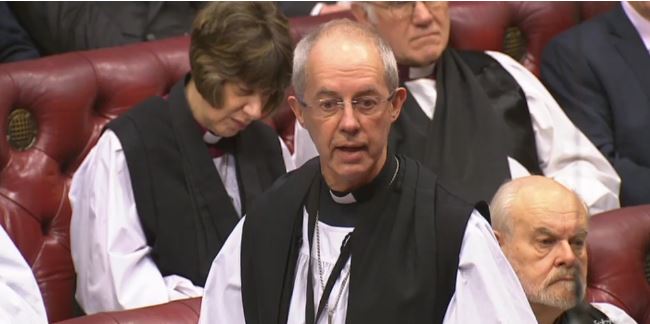Welby says UK economy is 'broken' and at 'watershed moment' as new report exposes inequalities

The Archbishop of Canterbury, Justin Welby, has said that Britain's economic model is 'broken' and called for fundamental changes as a new report shows that UK growth is funding business profits as workers' wages stagnate.
Archbishop Welby is a member of the IPPR think-tank's commission on economic justice, which found that although GDP per head has risen by 12 per cent since 2010, average earnings per employee over the same period have fallen by 6 per cent.
The share of national income that has gone on wages has gradually declined since the 1970s, from 80 per cent to 73 per cent, while the share going to profits has increased, according to the analysis. This puts wage share at its lowest level since the Second World War, which if the trend continues means that young people today are set to be poorer than their parents.
Further, the research warned of significant geographical imbalances within the UK economy, with 40 per cent of output produced in London and the south east and average incomes in the north west, south West, west Midlands and Wales now more than 30 per cent lower than in London.
Welby said: 'Our economic model is broken. Britain stands at a watershed moment where we need to make fundamental choices about the sort of economy we need. We are failing those who will grow up into a world where the gap between the richest and poorest parts of the country is significant and destabilising.'
Tom Kibasi, the director and chair of the commission on economic justice added: 'The British economy needs fundamental reform. We don't have a British economic model. We have an economic muddle. The persistent economic problems we have experienced since the 2008 financial crash won't be fixed with a bit of tinkering.
'There is a growing consensus across business, trade unions and civil society that a radical new approach is now needed. Change should be guided by a new vision for the economy, where long-term prosperity is joined with justice for all. We want to see the widest public debate possible on our analysis and proposals.'











